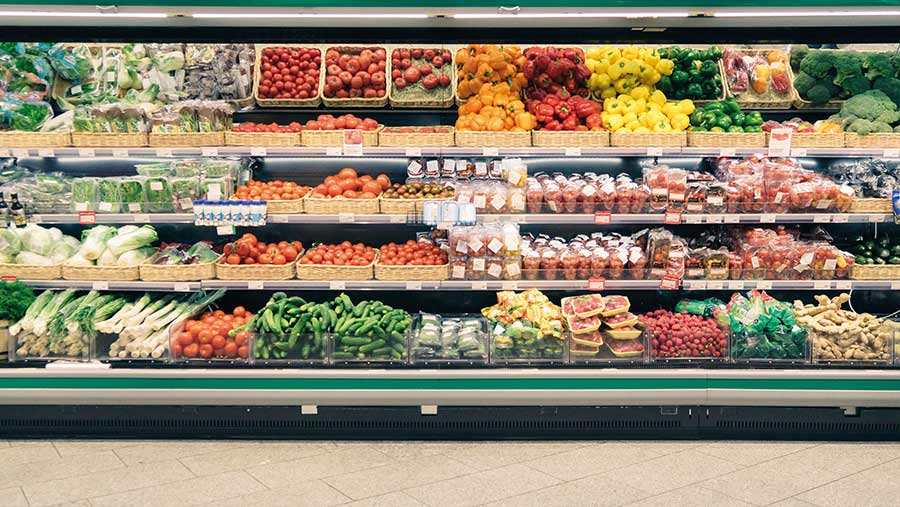Opinion: Retaining Groceries Code Adjudicator top priority
 © Fascinadora/Adobe Stock
© Fascinadora/Adobe Stock Vicki Hird heads up the sustainable farming campaign for food and farming alliance Sustain. Here she argues why it is so important farmers fight for the continuation of the Groceries Code Adjudicator.
Are your buyers treating you fairly? Has your treatment got worse since 2019? Have you had payment delays, last minute changes to contracts, unexplained fees, or not been compensated for forecasting errors?
About the author
 Vicki Hird is head of sustainable farming at food and farming alliance Sustain.
Vicki Hird is head of sustainable farming at food and farming alliance Sustain.
The answers to these questions we know are often unspoken. It’s tough for suppliers to talk about it for fear of delisting by their buyers. But we at Sustain are hearing that some treatment is currently far from acceptable – and it could get worse as cost of living and energy crises kick in over the winter.
See also: Consultation to look at scrapping Groceries Code Adjudicator
Some of the behaviours could be breaches of a legally binding code regulated by the supermarket watchdog, the Groceries Code Adjudicator (GCA), which now enforces the code with 14 retailers, including Amazon.
The GCA’s 2021 supplier survey confirms things have gone backwards after years of progress. Poor practices leave suppliers financially vulnerable at a time when they are facing multiple uncertainties, input inflation, worker and climate pressures, new policies and a volatile market.
Yet, with all that happening, the Department for Business, Energy and Industrial Strategy (BEIS) is consulting on possibly abolishing the adjudicator or squeezing it into the Competition and Markets Authority (CMA).
This would be a bad move. Yes, this new government wants to cut regulation (part of a “bonfire of red tape”), but the UK invented this carefully designed and relatively effective regulator. It is world-leading, copied by the EU, and costs consumers and taxpayers nothing.
I started working on supply chain fairness in 2004 because it was clear that farmers struggle to invest in best practice, higher welfare, nature- and climate-friendly approaches when under constant, inappropriate and unpredictable pressure from the small number of dominant supermarket buyers.
Back in 2008 – after we’d legally challenged the government into an inquiry – it found hundreds of harmful practices. The official report that led to the creation of the GCA, and the legally binding code of practice in 2013, ran to 269 pages, with hundreds more pages of evidence.
It was clear that practices that transfer “excessive risks and unexpected costs” on to suppliers, harm consumer food choice and quality and stop farmers and growers from being able to innovate and invest in sustainable and higher welfare approaches.
If the supermarket watchdog were scrapped, the UK government will be putting food producers and consumer choice at greater risk at the worst possible time.
The GCA needs to continue as an independent body, and any practical or logistical issues can also be addressed at this time. But don’t abolish or merge it with the CMA, where it will get weakened, be less able to keep information confidential, inevitably lose its expertise and ability to act nimbly, as well as less able to do its vital, delicate, and detailed negotiations.
So I urge farmers to respond to the GCA consultation, which closes on 11 October, or provide evidence via your farming unions.
We should also be calling for new legal codes to cover the rest of the supply chain, as the GCA can’t directly help farmers that are not direct suppliers to the 14 top retailers.
The Agriculture Act 2020 included a provision to set up legally binding, fair dealing codes for each sector – to remove abusive practices. The dairy and pork sectors have been consulted on this, but no codes or any enforcer have emerged yet. What’s the delay Defra?
- To respond to the GCA consultation visit bit.ly/GCA-consult
